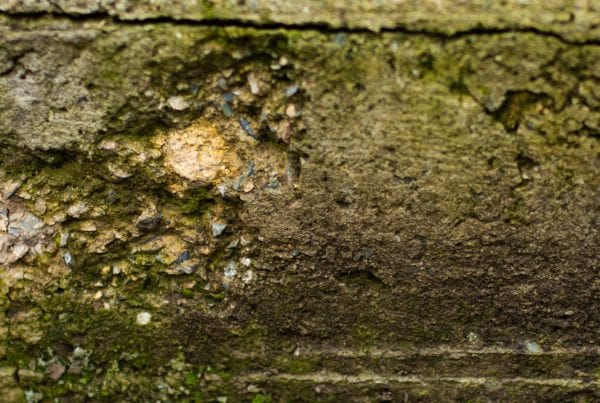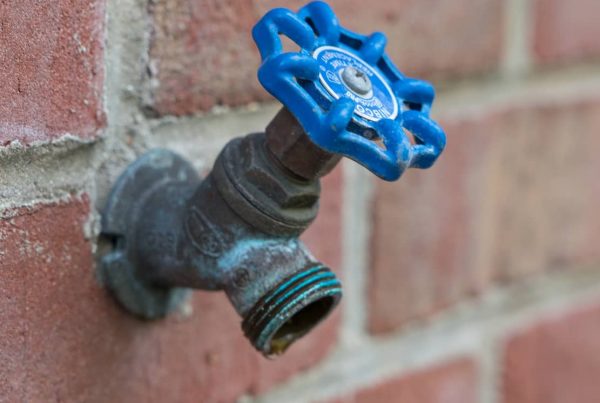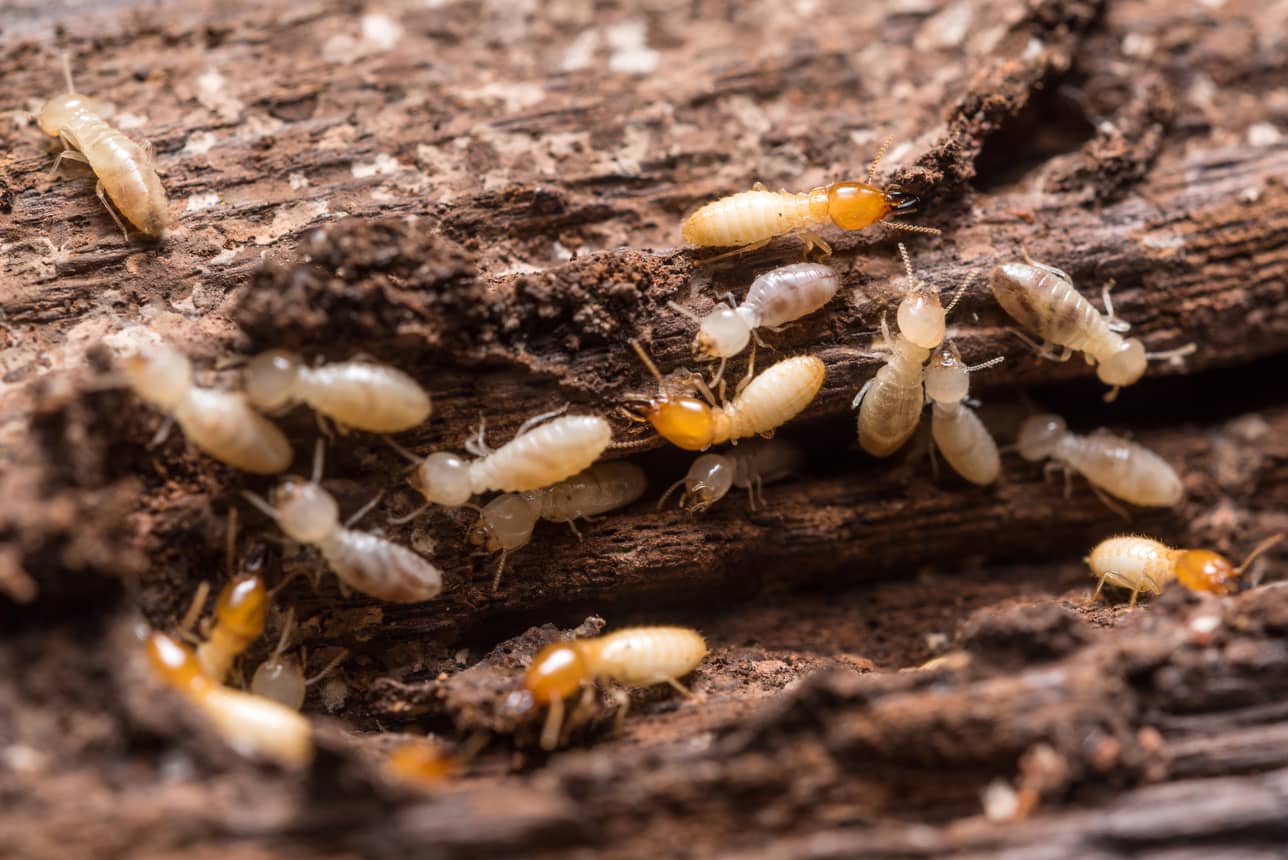
Whenever you are buying a home or have already moved into one, a termite inspection is important. Making sure that all of the structure of the home is intact can be very important. You wouldn’t want to buy or move into a home with termite damage. After you have moved into the home, make sure to reach out to your local termite pest control company to start the process. They will conduct a termite inspection for you to verify the best places for their baits and poison food source. How often should you get a termite inspection? It is recommended that you get a termite inspection done once a year.
Let’s take a look at the various types of termites, how we can identify if there are termites, and some preventative maintenance.
What Are Termites
Termites are well known to be wood-destroying insects. The cellulose in wood and paper products like cardboard is the main source of food for a termite. Here are the main types of termites in the United States.
- Subterranean termites – known for their underground prowess. They travel through mud tunnels under your home. They are similar to dampwood termites in terms of environmental preferences and food preferences.
- Dampwood termites – environmental preferences are any rotted trees that have fallen to the ground and are damp. The wetter and more moisture there is with the wood, the more the termites love it.
- Drywood termites – these termites enjoy a nice dry area. Dry forests and wooded areas of a home are great food sources for drywood termites. They love furniture and larger older trees.
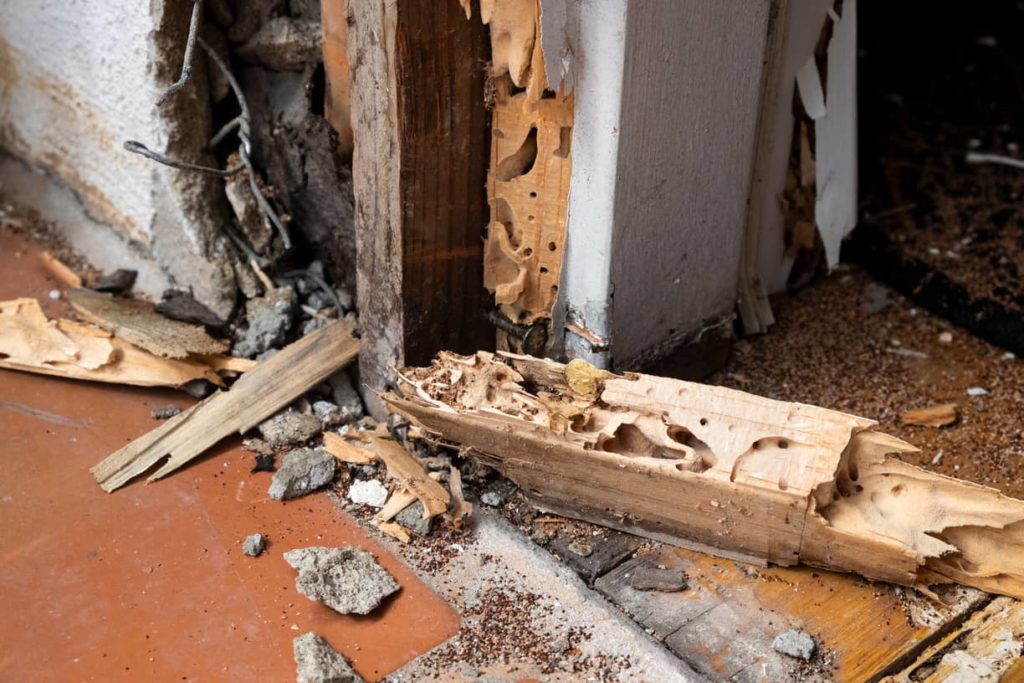
How Would I Know
Luckily for you as the homeowner, there are many visible signs of a termite invasion. Let’s review all of the signs of a possible termite infestation.
- Mud tubes – these mud tunnels or highways found near a wood source are a likely sign that termites are in the neighborhood.
- Discarded wings -when a new colony is established, many termites that are known swarmers will shed their wings. Identifying these wings is a clear sign of termites.
- Excrement – if you see little wood pellets that look like coffee grounds, that is “frass” or termite poop.
- Damaged wood – finding hollow wood pieces in your home is a clear indication. Going around and knocking on the walls can give you a clear indication of termites.
- Bubbling paint – check the source for the bubbling paint. It could be from another situation with your home. Termites are just one causes of bubbling paint.
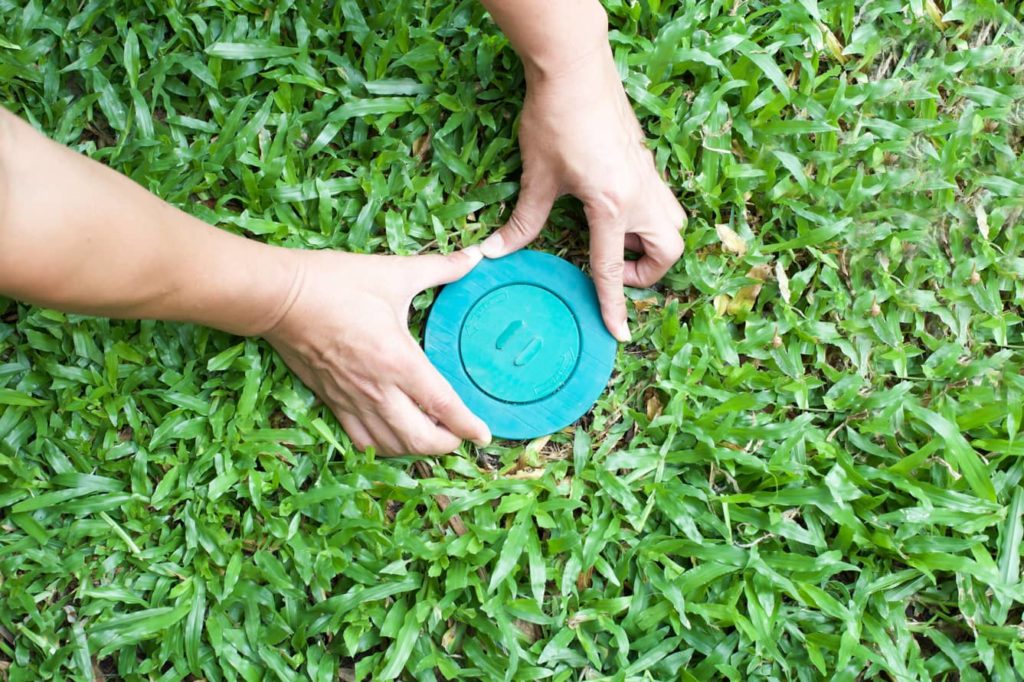
How Can I Prevent Them
Keeping any insects away from your home is a very complicated task. There are so many types of insects lurking in your yard, that it is important to have a pest prevention plan in place. Always remember that there are some great ways at home that you can assist with pest prevention and termite problems. Let’s take a look:
- Keep the Landscape manicured – ensuring that your landscape is well maintained can keep your home free from debris. Feed your lawn and plants with insecticides, fertilizer, and pesticides to keep the landscaping looking great.
- Throw away cardboard – if you keep cardboard boxes in your garage or storage areas, throw them out. Replace them with plastic bins. Insects love to chew on paper and cardboard.
- Clean your home – all pests and insects love dirty things. The dirtier the home the more they love your home. Consider the trash lying around your home as shelter and a food source for insects.
- Maintenance – ensure that all maintenance is taken care of throughout the year. Getting repairs done is key to keeping insects away. Always remember that insects love water as much as humans. So, keeping excess water damage and moisture to a minimum or even from occurring is important. Also, be sure to seal all cracks and crevices in and around your home.
- Get an inspection – having an annual home inspection is important. This is a great way to ensure all systems are working properly. Whether it is an older home or newer, you will save money down the road as you find minor issues before they become bigger issues. As mentioned earlier, having regular termite inspections annually will help.
- Be diligent about your home – always notice when things look out of place in and around your home. Getting any items fixed before they become bigger issues is key. Explore your attic, crawlspace, or basement to ensure all looks healthy and as it should. Termites love these places for their available food and shelter and you want to make sure they are termite free.
- Limit your home moisture – moisture in a home not only promotes mold growth, but also attracts insects like termites. It is best to keep your moisture levels at a minimum.
What Does It Cost
Termite inspections have an initial upfront cost of around $150. Once you have committed to a termite company, they will present you with a contract for maintaining their various traps and termite prevention program. A typical termite pest control contract can cost you between $600 and $1,000. It all depends on the size of your home. Most companies charge by linear foot. This can cost between $3 to $16 per linear foot.
Other Recommended Maintenance
Now that you are aware of how often you should get a termite inspection, this is a great time to learn about if they spread from house to house. Unfortunately, the answer is yes. The drywood termites fly from house to house, while the subterranean termites can travel 230 feet in their mud tubes from their colony for food.
Another good tip for homeowners involves pest control when renting out your home. With the current climate of home rentals being a popular business, you will want to read up on who is responsible for pest control when renting a home. Any additional expenses could mean less take-home profit for the homeowner that is renting out the home. So, make sure to review state laws.
Lastly, when building a home you will have many expenses. Finding the right termite pest control contract is likely at the bottom of your list of concerns. When building a custom home, you will want to know the ins and outs of the home builder and what they will cover in your construction contract. If you are using a realtor with your custom home build, they will be able to help fight for added bonuses in your custom build. One of those added bonuses might be a termite pest control service.
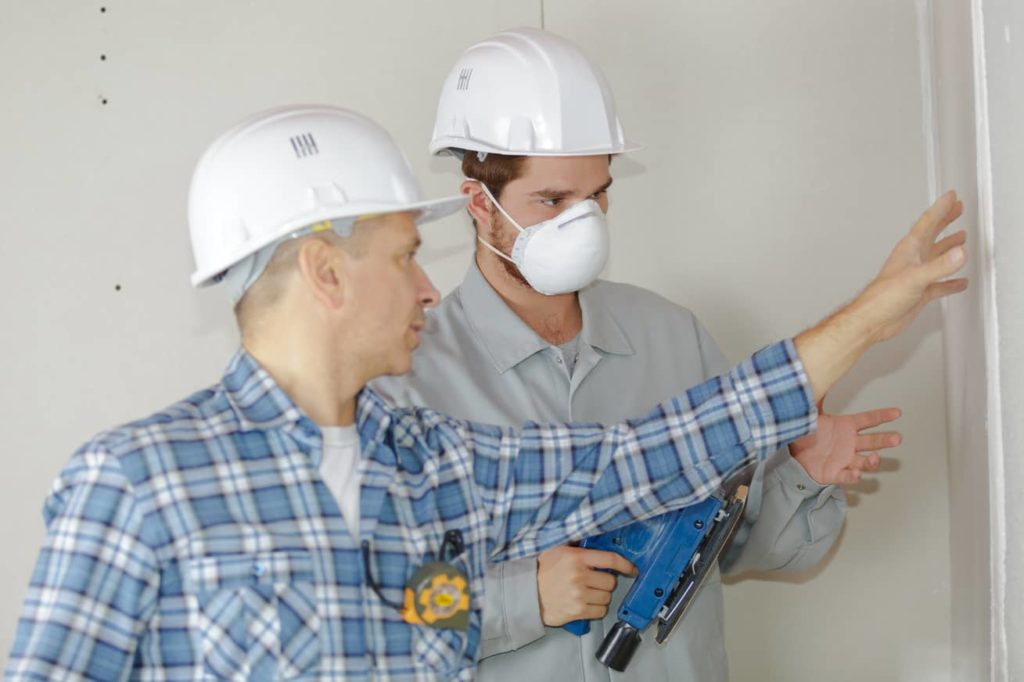
When Do I Call A Professional
Calling on a professional termite pest inspection control team is key for protecting the structural integrity of your home. If you begin to notice mud tubes, wood damage, and living termites in and around your home, call on your professional pest control company. In addition, you can reach out to your local home inspection team.
They can inspect the homes full structure to ensure that no termites are present. Also, if there is damage, the home inspection team can recommend a quality termite pest control company. Additionally, they can tell you if your home is at risk for termites.
Conclusion
Gaining an understanding of what termites like and don’t like is important to protecting your home. In addition, you will want to have an annual inspection to ensure that termites haven’t broken through your termite pest control barrier. Call on your local home inspection team so they can provide you with a termite inspection and follow up with recommended termite prevention and control. Call on All Coast Home Inspections for a termite inspection in Houston, TX.


